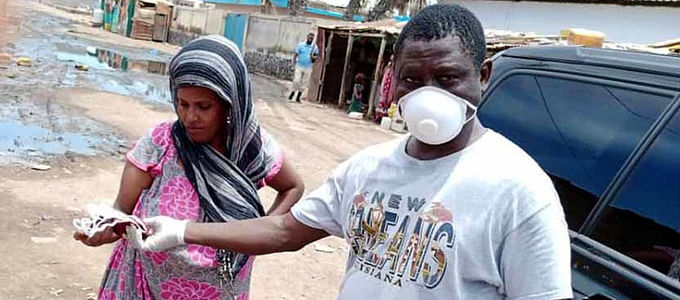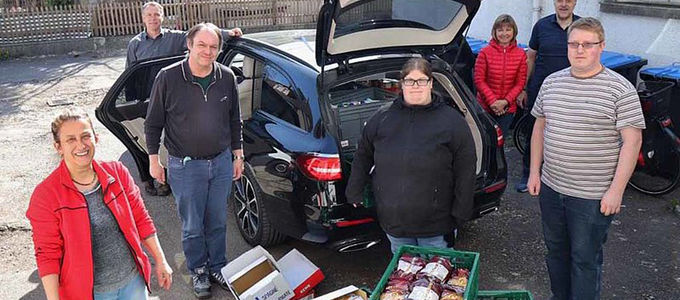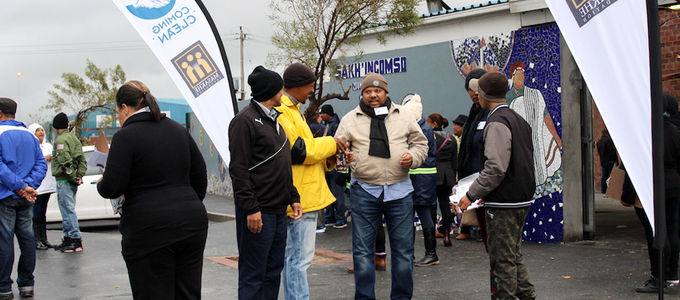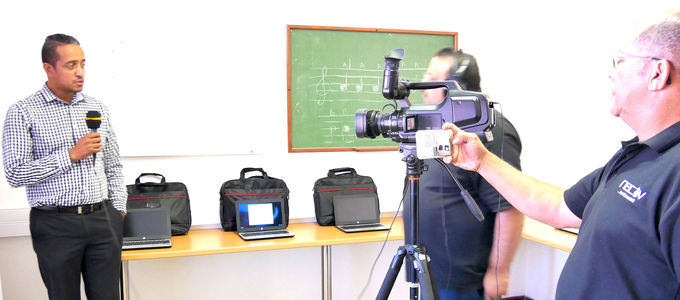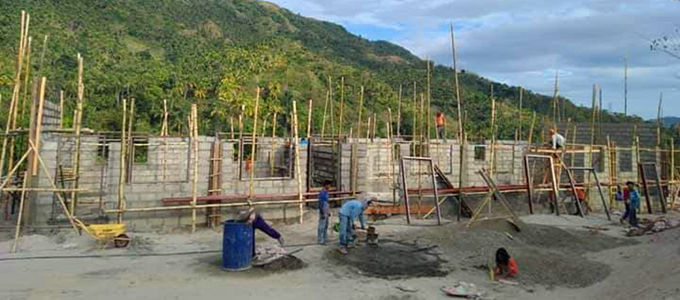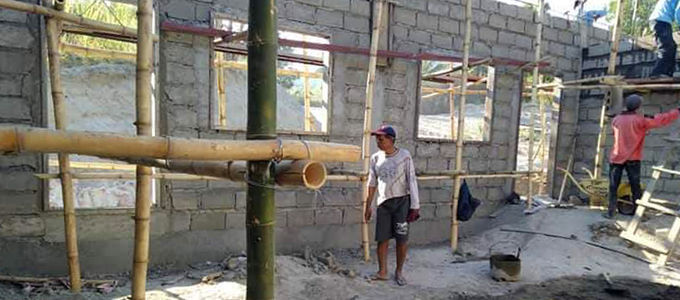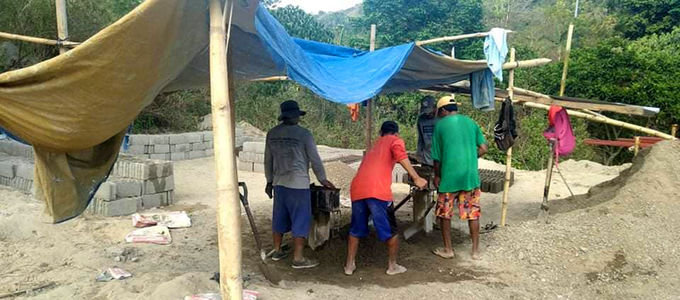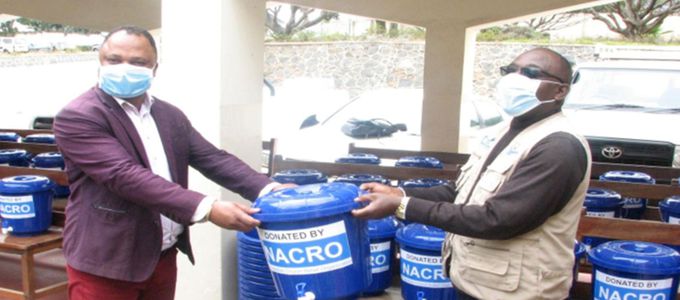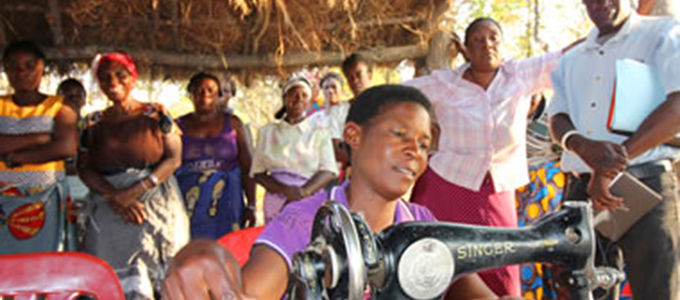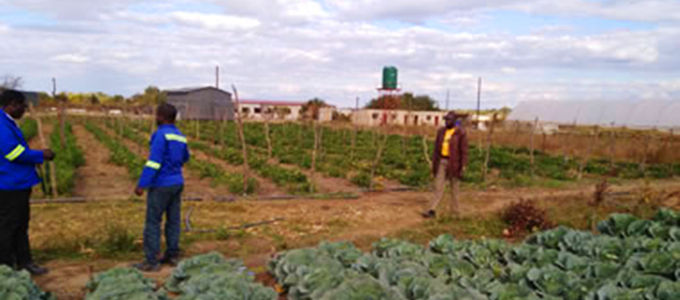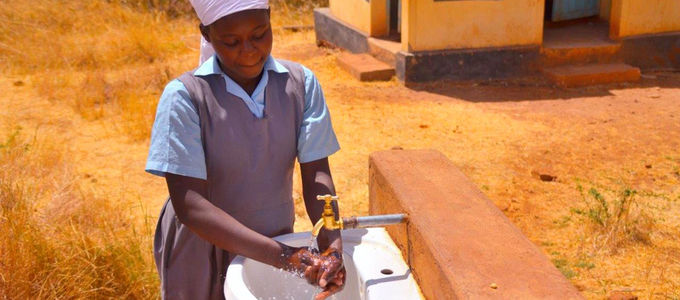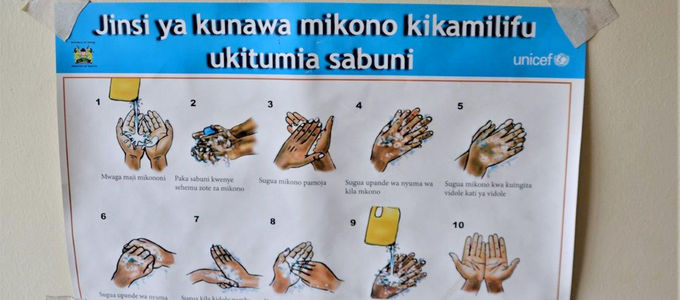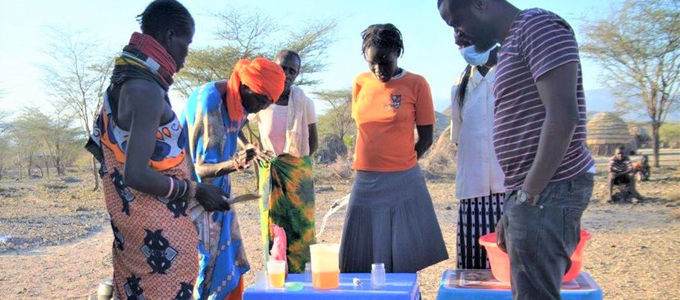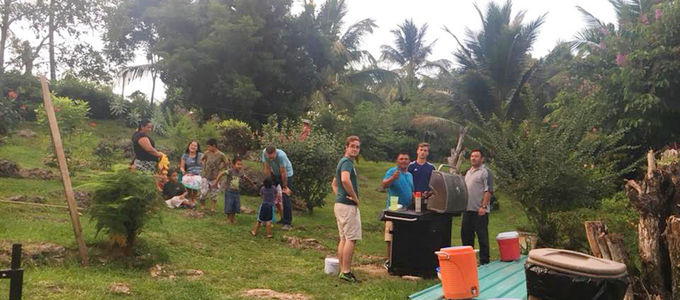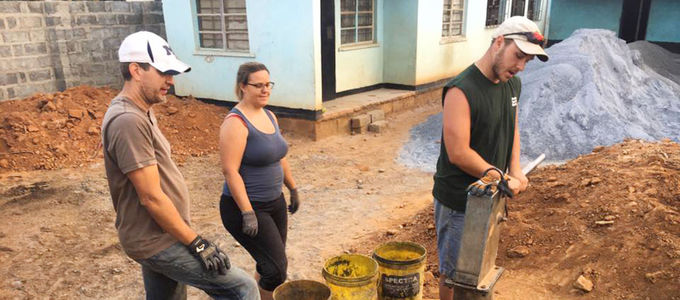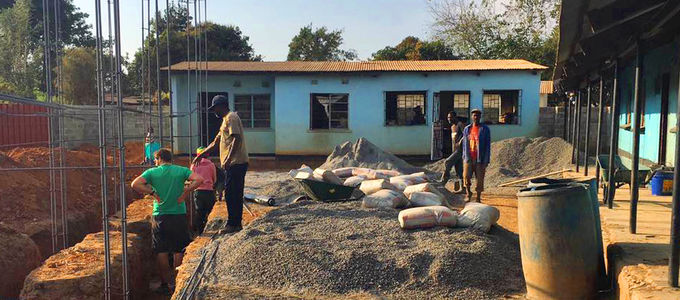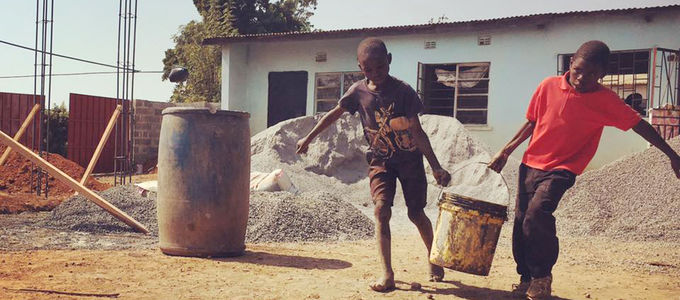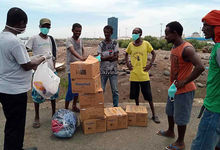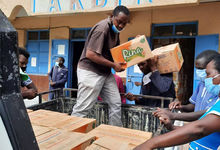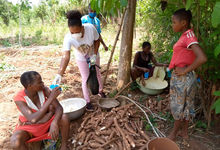Aid organisations amid the corona pandemic: aid workers in an ongoing deployment (Part 2)
For months at a time, aid workers toil in remote regions, only to find that they cannot even return home to their families owing to recent lockdowns. It is a crisis that stops people in their tracks, and yet still allows them to grow…
Are aid measures on the brink of failure or do projects have to be stopped altogether due to the pandemic? What are the effects of Covid-19 on ongoing and future efforts? And might it be possible to implement some entirely new projects?
NAK-karitativ in Germany remains confident: “All our projects will be implemented. Owing to the implications and limitations of the pandemic, however, there have been delays in a number of places. This often leads to an increase in expenses, for example, if paid personnel need to get involved in a project or if additional costs are incurred due to the delays.”
Like other aid organisations, human aktiv works in many countries of the world at the same time. “In Djibouti, the smallest country on the Horn of Africa, approximately one quarter of the population lives in extreme poverty. One of the biggest problems there is malnutrition in children. The charity helped needy people in the region by providing them with basic essential foodstuffs as well as items to protect against infection—such as masks, gloves, and soap.” Here too, it was possible to continue with the projects.
Budget freezes and project lockdowns
NAC SEA Relief has made an experience that no aid agency ever wants to make: “Loss of businesses and loss of jobs have put many Filipinos into a delicate and difficult personal situation.” In response, the relief agency initiated a support campaign, but ultimately had to limit its aid to Church members only, given the extent of the catastrophe. “There was no longer any way of solving the problem, but our food packages brought great joy, and gave the feeling that no one was forgotten.” And there is also grounds for further concern: “We do not know how far the situation will still escalate. It is still too early to say whether our donors have been affected, but we are currently on a budget lockdown—hopefully it is only temporary. We remain vigilant in order to reach those in need, but we have postponed our larger projects to next year.”
The lockdown has also led to drastic measures in South Africa: “We had to suspend all the projects we had planned. We will carry on as soon as the lockdown measures are lifted,” relates the Masakhe Foundation. Zambia’s NACRO has likewise suspended projects owing to a decline in donations: “We have a number of projects pending at the moment, such as a water and sanitation programme for schools, educational infrastructure, and so on.” But Tebuho Yubai is convinced that none of the projects will have to be permanently cancelled.
New projects and unusual ideas in times of need
However, there are also some new projects that the relief agencies are developing. NAK-karitativ reports: “Over the past months we have launched an emergency aid project for epidemics and pandemics. This allows us to provide support to people in the countries of Kenya, Burkina Faso, South Africa, Malawi, Zambia, and Armenia with emergency aid packages containing basic essential foodstuffs and hygiene products such as disinfectants.”
Nevertheless, financial aid is not only needed in apparently poor countries, but even in some supposedly affluent countries of Europe. Susanne Raible of human aktiv explains why foodbank facilities in particular are receiving support: “The need of the people has increased as a result of the pandemic, but the foodbanks have received fewer food donations and less financial support.” This helps significantly increase financial support for these projects.
And Urs Hebeisen from South East Asia reports on some new—and indeed, unusual—projects: “A touchless hand washing installation for a central church and a public school were among the more curious things which we were able to accomplish, and which show how innovation is driven by need.”
Combining forces: aid networks
In collaboration with the Grassroots Program, the re Charitable Ministry (USA) is a long-term partner of King’s Children’s Home (KCH) in Belize. It is in this context that interested volunteers visit the home twice each year—at their own expense—in order to help along with ongoing repairs, construction, and other activities. It is this kind of personal commitment—along with an annual project grant for the programme—that comprises the work of the aid organisation. “As a result of the restrictions associated with the corona pandemic, our visit in June 2020 had to be cancelled,” laments Kim Kolb. “However, this does not mean our ongoing work with the home has come to an end. Belize is heavily dependent on tourism revenues, which have practically disappeared. This has led to growing friction and despair in the country.”
Beyond that, the re Charitable Ministry also provides support in disaster situations. “In the last few weeks, such activities took place both within the USA as well as in various missionary countries in its care, where our members are increasingly confronted by severe restrictions on food aid and other daily needs. With the help of the local congregations, programmes to support food supply and livelihoods have been launched in several countries which have been hardest hit by the pandemic. “We also fall back on our growing network of partners here in the USA, for example, food banks, local authorities, and other charitable organisations,” explains Kim Kolb.
And in South Africa, the Masakhe Foundation has also launched some new projects as a result of the pandemic: “We are providing food aid for the needy all over South Africa. And we will continue with virtual education sessions on addiction,” writes Jacqui Naidoo.
Gratitude and trust in God
Should they simply bury their heads in the sand? Or perhaps temporarily close the relief organisations? Our aid workers would never hear of such a thing. Optimism, hope, and trust in God—that is what characterises the workers of all our relief organisations. And this is also clear from their answers when asked about their greatest joy and their greatest possible concern:
Nadine Beckmann (NAK-karitativ) explains: “On the one hand, we are grateful that we continue to receive such benevolent support from our donors, despite the crisis, and on the other hand, that everyone has so far come through this time unscathed and healthy.” The team from human aktiv was especially delighted by the many letters of thanks they received for their support of a food bank campaign across Germany. “It looks as though we were one of the first denominations to really have done something right from the beginning of the coronavirus crisis here!”
Gratitude in a state of emergency
And in South-East Asia it is not only optimism and hope that prevail but rather also tremendous gratitude, as Urs Hebeisen writes. A special part of the reason for this is that a school project undertaken in collaboration with NAK-Humanitas (Switzerland) could be implemented despite various freezes and lockdowns. “Without even a single day of work interruption,” says retired District Apostle Hebeisen gratefully. The special part was that “the project was located in a remote rural area near Hinobaan/Negros”. The workers stayed at the construction site for five months. So it was that we were able to secure the permits from the local authorities—which was practically a miracle in its own right! Unfortunately, they were unable to return home immediately after their work was complete. Our builder, Sofonie Nuyad from Tagum/Davao in Mindanao, is still in the province of Negros Occidental.” Travel in general, and even crossing into other provinces and communities, remains impossible. Just imagine working without interruption for five months, and then still not being able to return home afterward!
Kim Kolb summarises as follows: “To live out and act upon the commandment to love our neighbours, whether members or not, is one of the most fundamental and formative experiences for any believing Christian. It is what motivates our many congregational volunteers as well as our team. At the same time, the sheer size of the needs, the complexity of individual local situations, the limitations of resources, and the inevitable feeling of failure due to the fact that we cannot address every situation comprehensively at every moment in time, often weigh heavily on us.” It is in these moments that they realise that they cannot do anything alone, but that they do their work out of their understanding of faith in God. “We must also come to terms with the realisation that we will not be able to resolve all the needs in the world—but that we must strive to do our best wherever God has placed us at any given time.”
Humble, courageous, and motivated
“Hunger is a major challenge in South Africa,” says Naidoo of the Masakhe Foundation in conclusion. “To be able to provide food relief to families, and to witness their appreciation, encourages us to continue and do more.” And at the same time, another concern comes to the fore, namely funding. “I know that many individuals will become unemployed in South Africa due to the lockdown restrictions, and they will require food relief support.” The coming weeks will reveal what is possible and what is not.
And Tebuho Yubai (NACRO) expresses yet another concern, namely “the probability of an increase in the numbers of Covid-19-related deaths as reported by the health authorities.”
These helpers are in ongoing deployment. All around the world.
Contact information, donation accounts, and other information on the activities of the aid agencies of the New Apostolic Church around the world can be found on their respective websites:
- human aktiv (Southern Germany)
- Kumea (East Africa)
- Masakhe Foundation (Southern Africa)
- NAC Foreign Extension (Canada)
- NAC SEA Relief Fund (South-East Asia)
- NACare (Australia)
- NACRO (Zambia, Malawi, Zimbabwe)
- NAK-Diakonia (Austria)
- NAK-Diakonia (Switzerland)
- NAK-Humanitas (Switzerland)
- NAK-karitativ (Germany)
- re Charitable Ministry (USA)
- Ser Prójimo (Argentina
- Stichting Corantijn (Netherlands)
In part 1, the aid organisations report on the effects of the corona pandemic on their local activities as well as on their international efforts, and go on to describe related developments in donation revenues and project management.
Article info
Author:
Date:
Keywords:
Oliver Rütten
14.08.2020
Aid agencies,
Social commitment,
International


